Intellectual humility fosters open-mindedness and respectful dialogue. It involves acknowledging the limitations of our knowledge and genuinely valuing diverse perspectives. Intellectually humble people approach information with curiosity and wonder, which promotes lifelong learning and growth.

Amid rigid conflict and political polarization in our society, we need intellectual humility. But who is humble in this way?
From January 2023 to mid-May 2024, 11,919 people took the GGSC’s intellectual humility quiz. Questions on this quiz were drawn from three scientifically validated scales, alongside questions about the quiz takers’ demographics, like age, education, politics, gender, and income. We analyzed quiz scores according to these factors to see how intellectual humility might vary along these lines.
Growing into humility
Quiz takers under 18 years old reported slightly lower levels of intellectual humility, followed by an increase among 18 to 29 year olds. Interestingly, intellectual humility scores were consistent thereafter. This may indicate that intellectual humility develops in young adulthood, and holds steady in life.
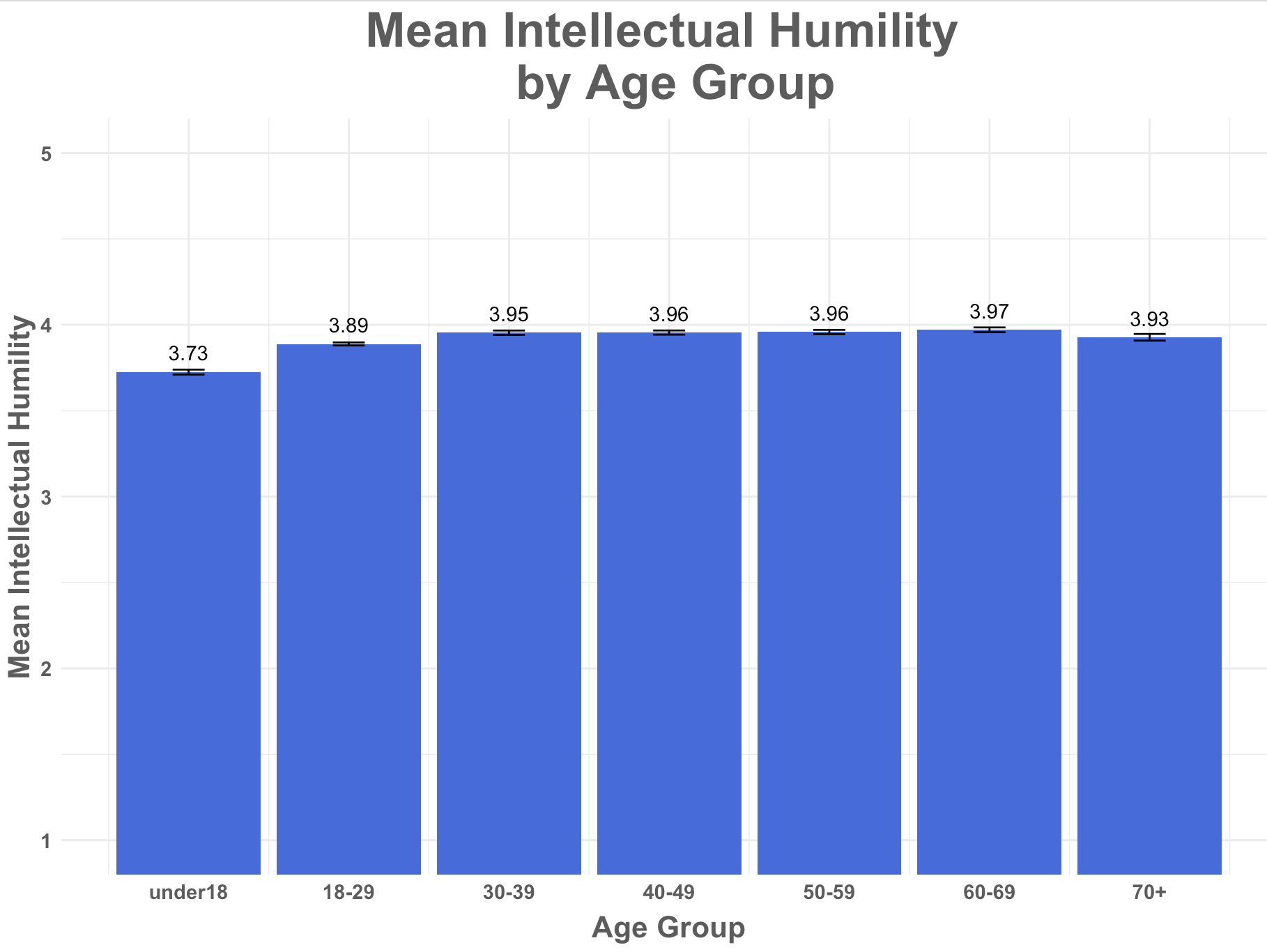
Learning to be humble
Scores from quiz takers with different levels of educational attainment show a similar pattern: People with a college education show higher intellectual humility than those with a high school education.
It’s possible that more schooling simply increases the likelihood of endorsing statements that are characteristic of intellectual humility, like “I welcome different ways of thinking about important topics.” In this case, the differences wouldn’t be as meaningful as they seem. Or exposure to multiple disciplines and diverse perspectives with deeper academic engagement might truly promote a humble attitude, where we recognize the limitations of our own knowledge and are open to revising and updating our views.
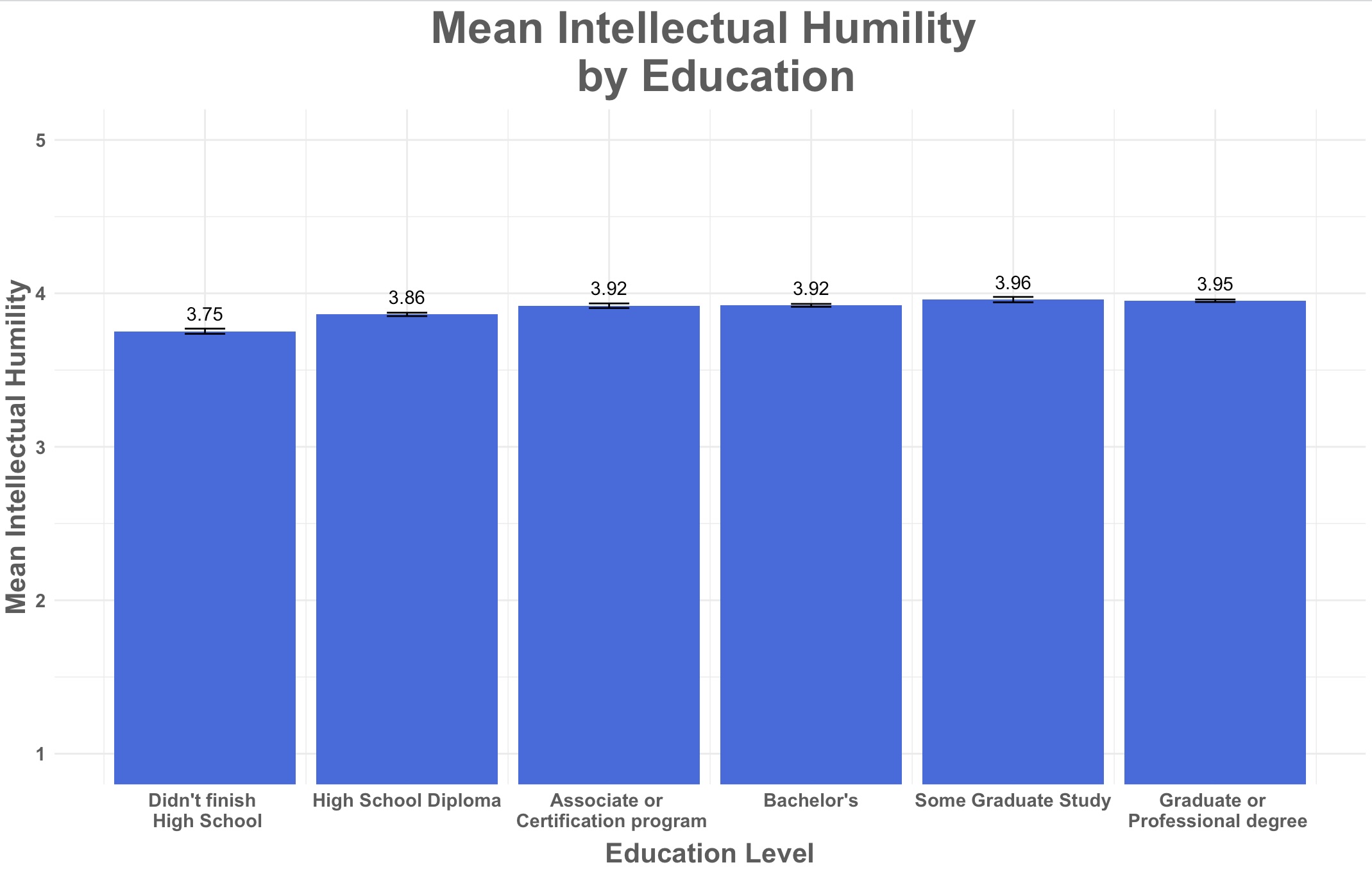
Political influence
Interestingly, there was a clear pattern between political orientation and intellectual humility. Specifically, very conservative quiz takers’ intellectual humility was lower than that of people with less conservative and liberal political orientations.
This finding suggests that political ideology plays a role in how open people are to questioning their own knowledge and beliefs. Especially in this election year, communication about difficult topics is important but fraught with challenges, and practicing and encouraging intellectual humility could be a tool for reducing political animosity.
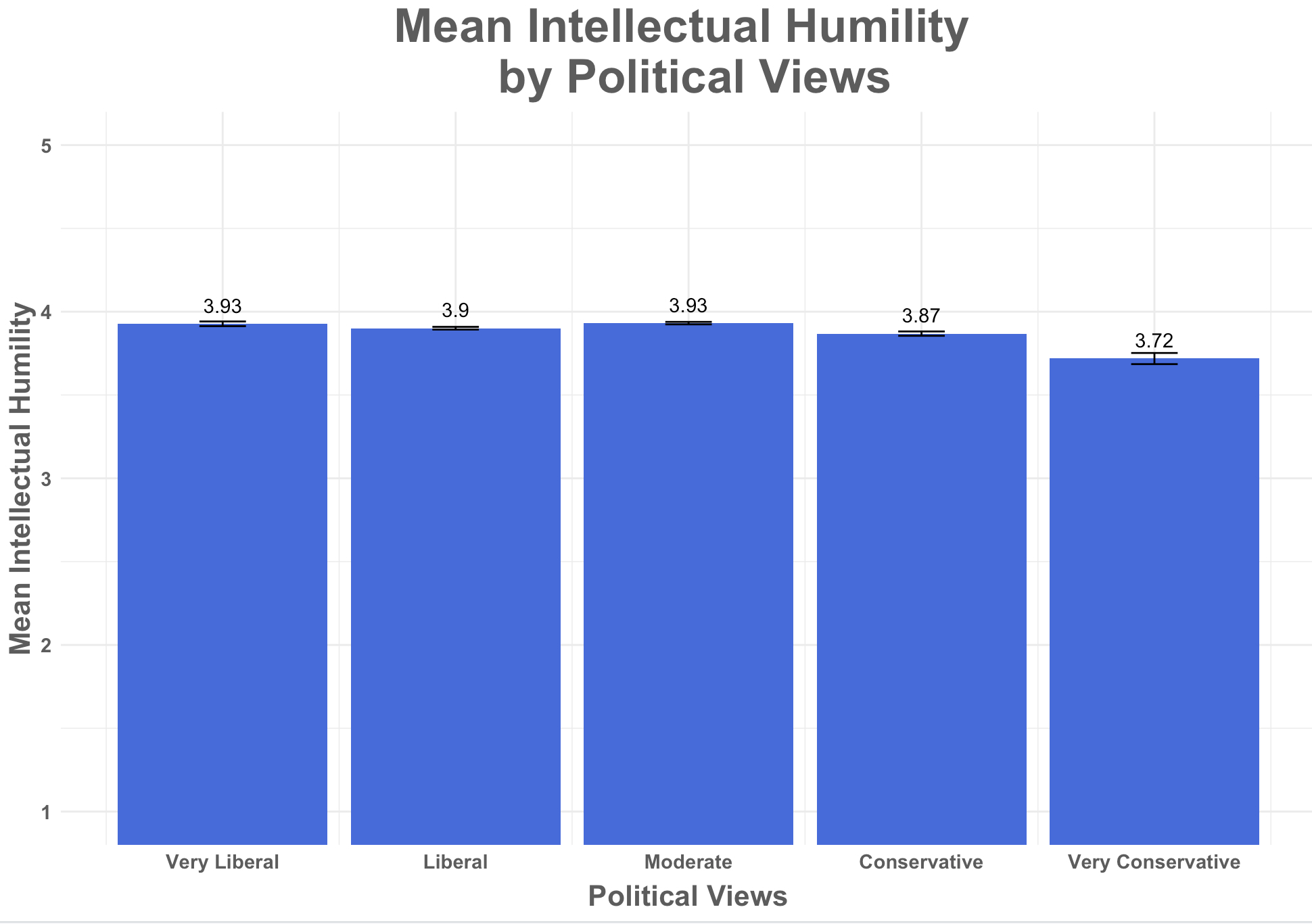
Gender and neighborhood differences
Gender differences in intellectual humility quiz scores were slight, with male quiz takers reporting higher humility compared to other gender identities. Similarly, our quiz takers who were from a big city also had a small advantage in intellectual humility. Perhaps living in a large urban area might foster humility by exposing residents to many other types of people and perspectives.
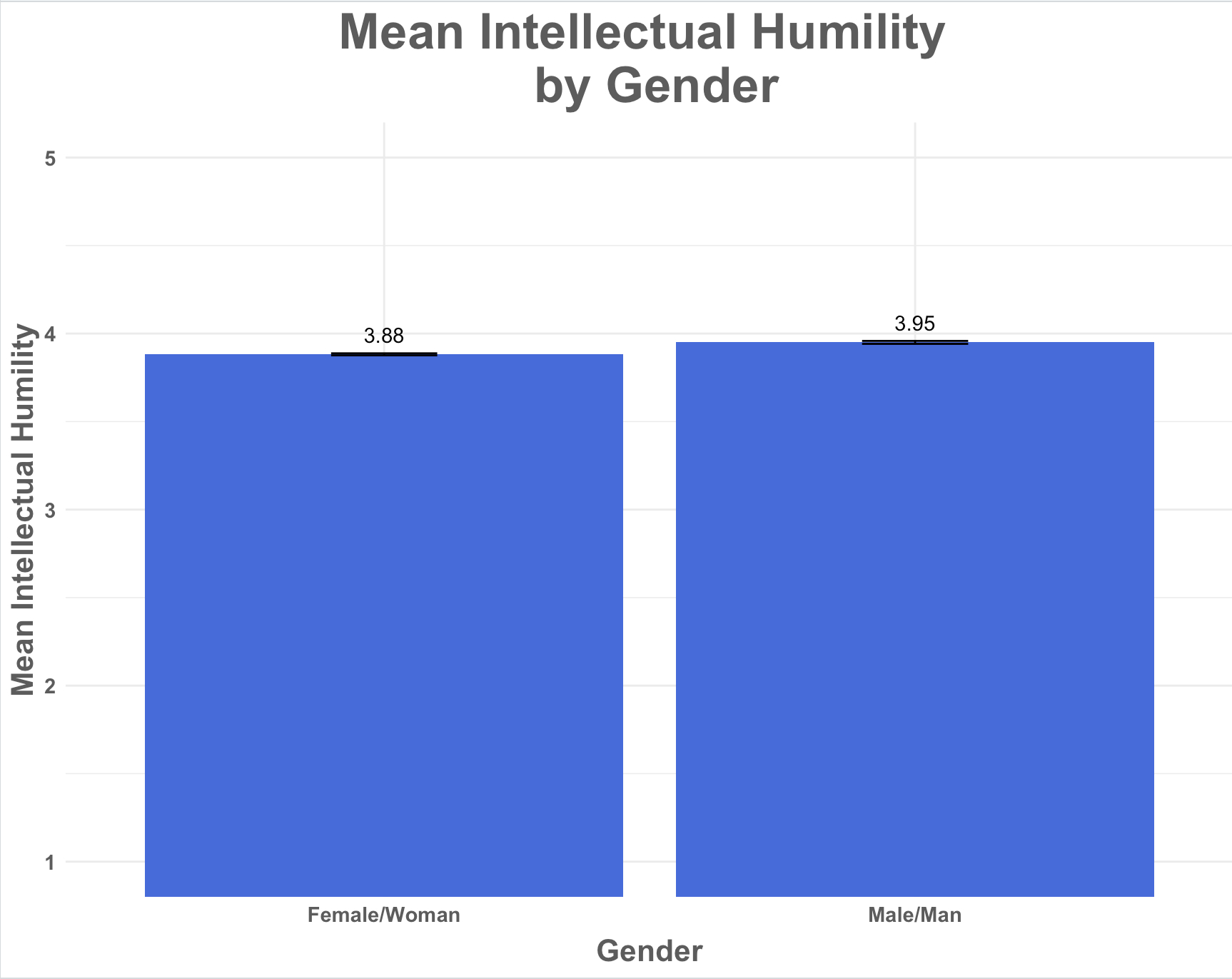
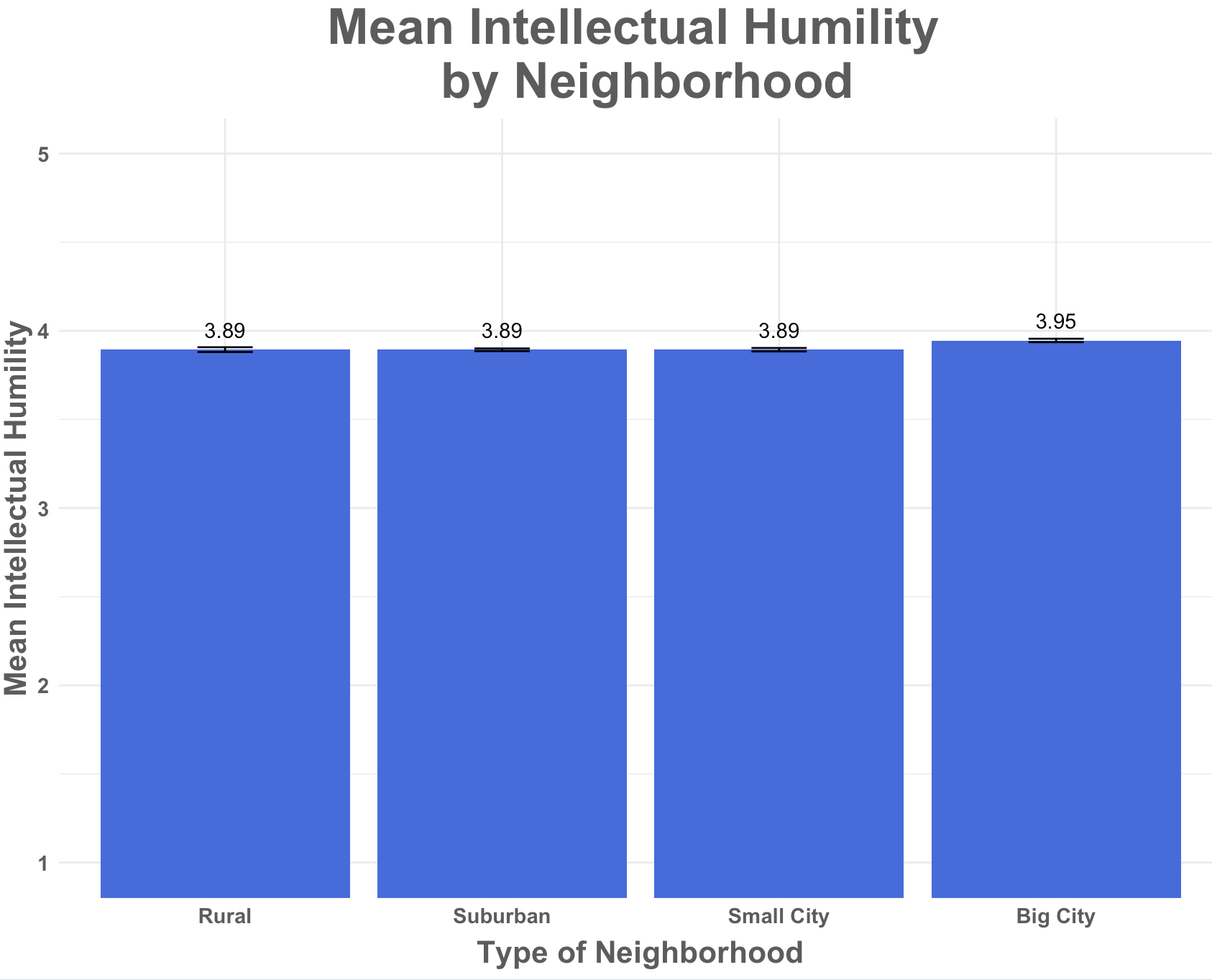
Intellectual humility does not vary by income or ethnicity
In contrast, the differences in intellectual humility for people of different income levels were minimal. Perhaps socioeconomic factors do not systematically influence intellectual humility.
And, similarly, there were no significant differences in intellectual humility between quiz takers based on their ethnic identity. Although humility may be more or less valued in different cultures, cultural background appears not to play a strong determining role in how humble someone is, at least according to our quiz.
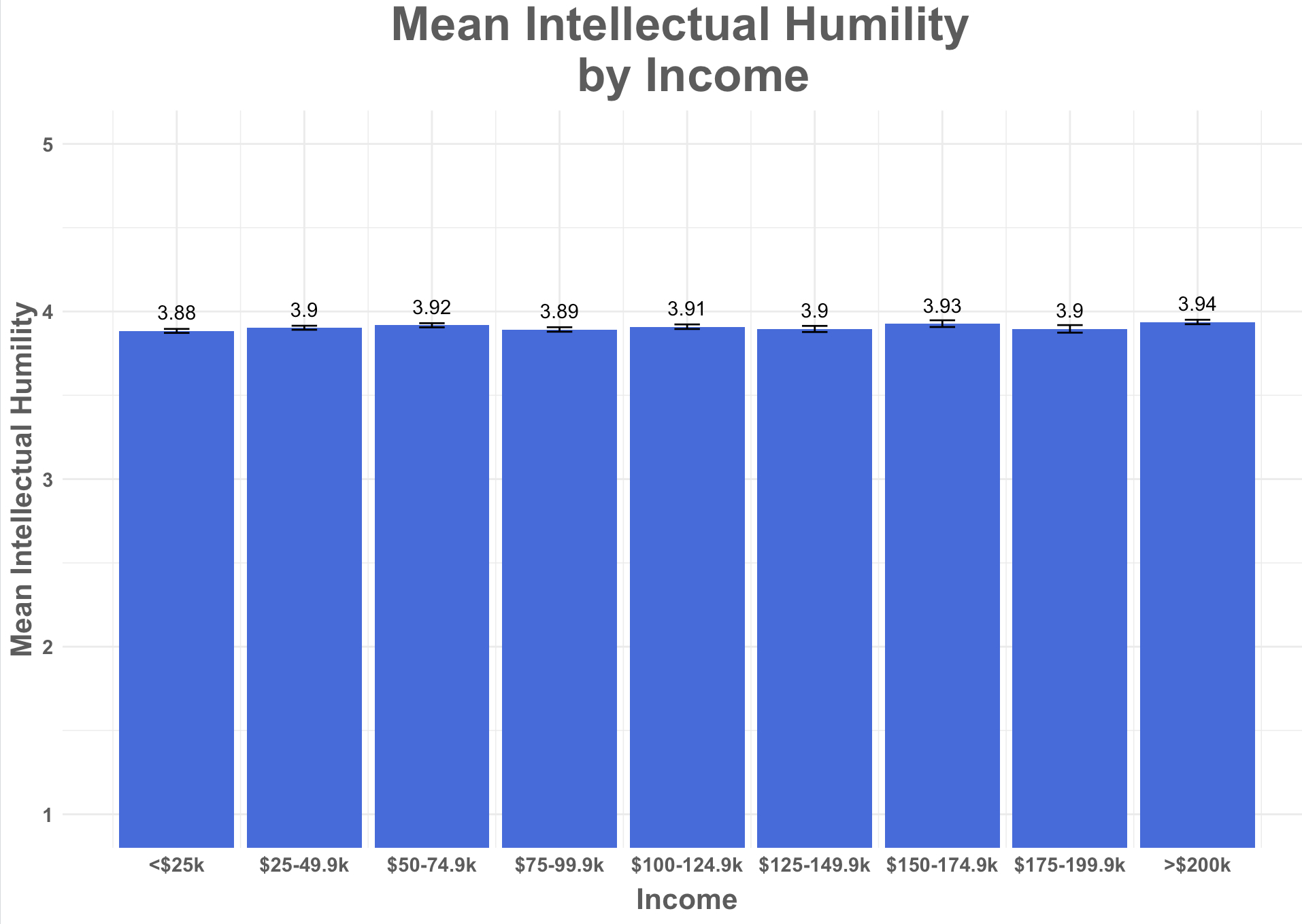
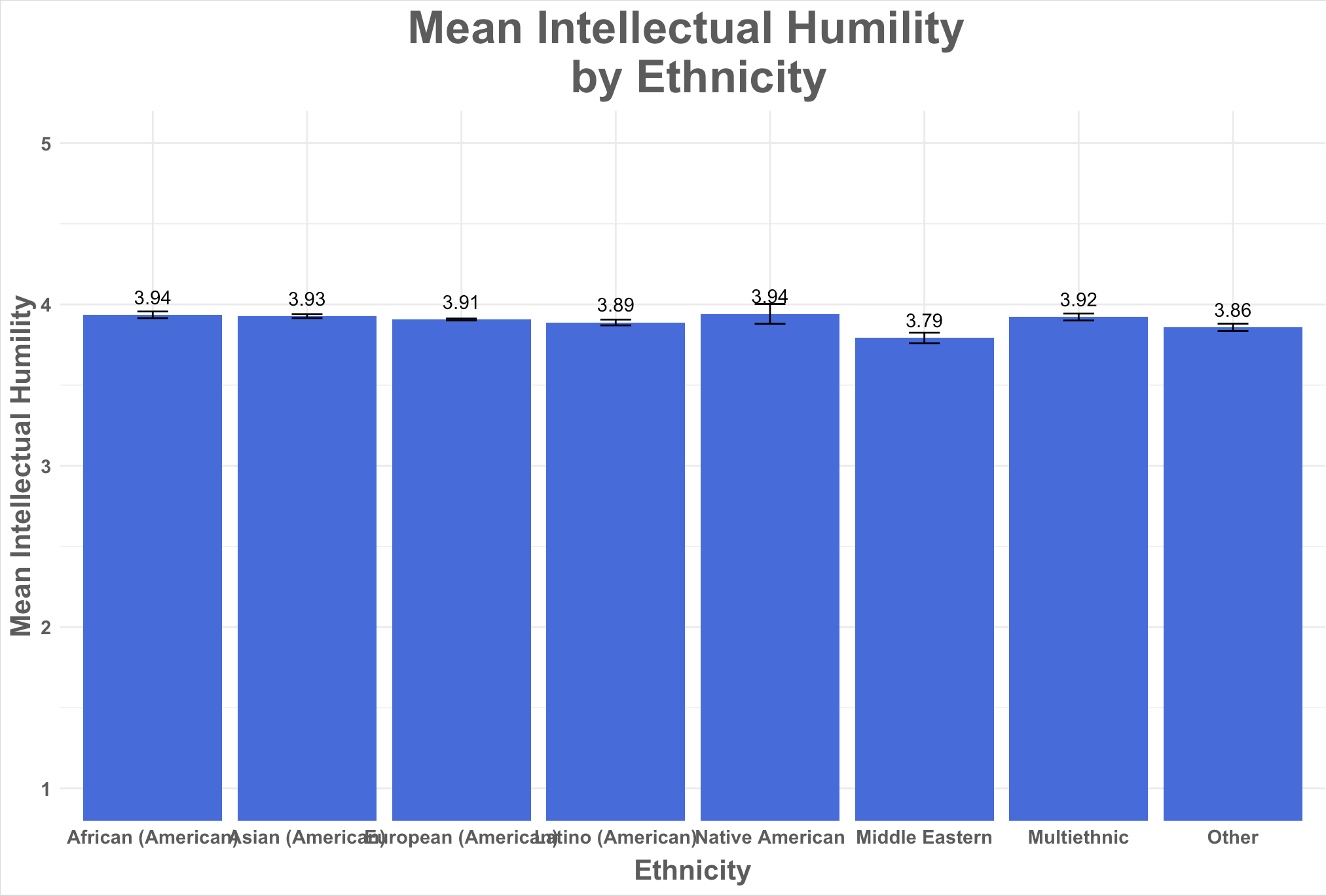
Through this exploration, we have looked at whether individual factors might explain differences in intellectual humility. With most, there were not dramatic group-based differences. As exceptions, education and age tell an interesting story about how learning and growing tend to increase intellectual humility.
The graph below shows how education level tracks with intellectual humility when controlled for age. Individually for quiz takers, both age and education have a strong effect on intellectual humility, but more education is more impactful at lower ages than higher ages. The exception seems to be for those who didn’t complete high school, who still had lower humility no matter their age group.
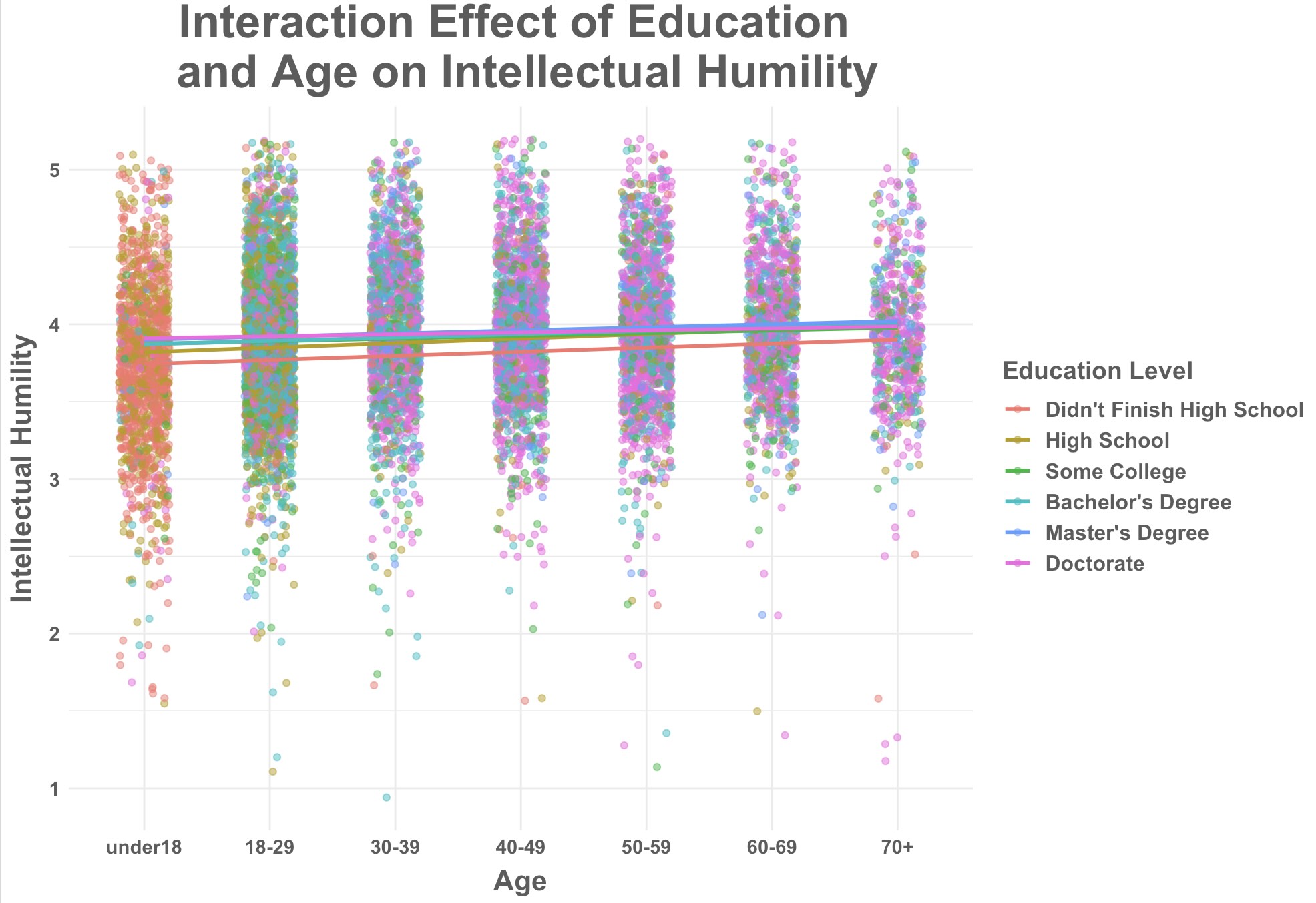
This virtue of intellectual humility is important to our future as a society, as we have more and more opportunities to learn from and talk to people with different perspectives and backgrounds from our own. Taking time and effort to foster intellectual humility would be helpful in establishing dialogue and helping us collaborate to make positive changes in the world around us.







Comments